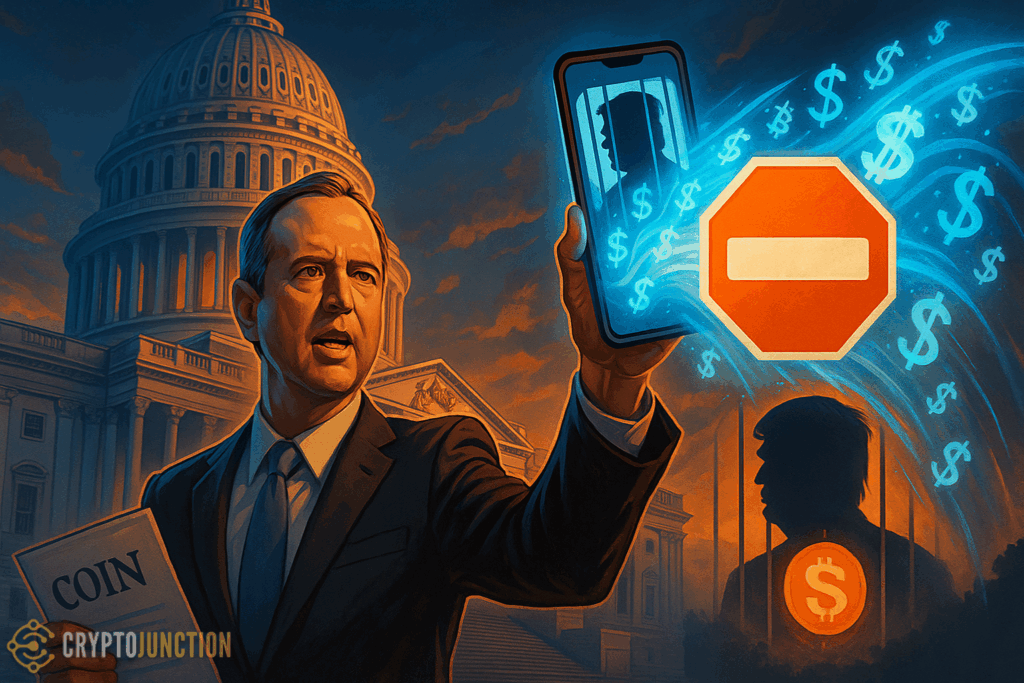In a large-scale effort to restore ethics in the halls of Washington, Senator Adam Schiff (D-CA) introduced the COIN Act in 2025. This bill, which also has the title of the Curbing Officials’ Income and Non Disclosure Act, puts forth a plan to ban issue, support, or promotion of cryptocurrencies by present and former public officials. This includes past Presidents. This legislation is a response to former President Donald Trump’s very large digital asset empire, which reported making over $57 million from token sales in 2024.
The bill has expanded the range of which public figures are affected by these rules to include Vice Presidents, Members of Congress, senior executive officials, and their spouses. It also includes provisions which ensure that these people do not take part in crypto-related businesses. These businesses may present a conflict of interest, including holding or trading digital assets affected by the COIN Act.
The COIN Act With Presidential Involvement In Crypto
The COIN Act sets out to put in place defined timelines for which actions will take place. For 180 days prior to taking office and for two years after, officials will be prohibited from crypto-related activities. Penalties will be in proportion to profit for which the official was involved. For the greatest violations, prison terms will be up to 5 years.
According to the Senate vote record, the COIN Act narrowly passed committee review. It pushed forward its provisions requiring public disclosure of digital asset transactions over $1,000. It also mandates that crypto assets held by officials be included in their financial disclosure reports. This is required by the amended Ethics in Government Act. Additionally, stablecoin issuers must report that they do not have public officials profiting from their projects. This is a condition for regulatory approval, all under the COIN Act’s guidelines.
The COIN Act Goes After Trump’s Crypto Empire
At the heart of this legislation is Trump’s crypto play. His company World Liberty Financial ran a $550 million token issue and issued a $2.2 billion stablecoin, USD1. Trump owns over 15 billion in WLFI governance tokens, which gives him great say in the project. The international use of USD1, which included MGX’s $2 billion into Binance, has raised national security issues. These issues are now targeted by the COIN Act.
Also, the Trump family is into a variety of investments, including memecoins, bitcoin mining, and ETFs. The $TRUMP meme coin has seen $320 million in fees generated. Reports indicate that Trump-related businesses control 80% of that coin’s supply.
Democratic Strategy In Crypto
Although the passage of the COIN Act is a large step toward reforming crypto conflicts, it faces strong opposition from the Republican-dominated Congress. Schiff’s proposal is in response to criticism of his support for the GENIUS Act. This act did not include presidential restrictions covered by the COIN Act. Also, Democratic co-sponsored bills like the MEME Act and the Stop TRUMP in Crypto Act highlight a growing issue with crypto’s role in politics.

